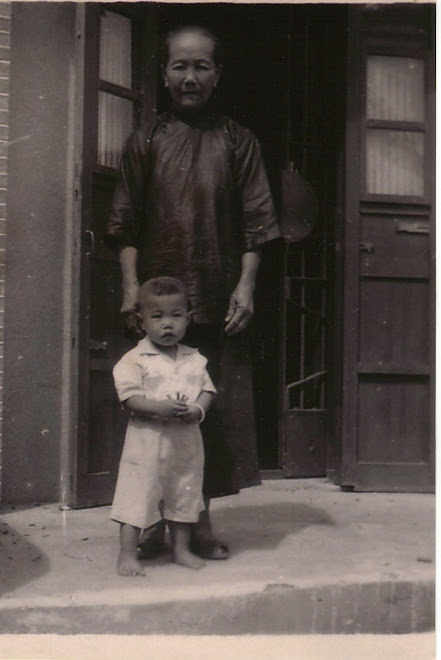Every family has its myths and stories, they constitute the family's collective memory. It's important to families to have stories that connect you to the ancestors and to each other. Immigrant families treat story-telling in different ways-- either mythical "old country" parables that create a perfect world of tradition and beauty that has been lost, or else a void.
These last believe mostly in the new. "We left the old country and its myths behind". My mother, my grandmother, and my mother-in-law subscribed to the leave-it-be school of immigrant story-telling. We have no old-country stories from these women. All of the stories of the Samioses (Samii?) and the Chins are new land tales, about what happened here in the country that they chose, rather than there in the country that they left. The only thing that really came with them was the food, so Bill and I know nothing about our immigrant heritage except how to eat.
When you don't tell stories, it's hard to get the details to agree. Everyone involved in the original incident must agree-- I said this and you said that, then these things happened in this sequence. The collective must create the stories. The grise tells the mother tells the child, who carries that story at many removes into the future: "This is who we are, because this is who we were."
Subscribe to:
Post Comments (Atom)

No comments:
Post a Comment